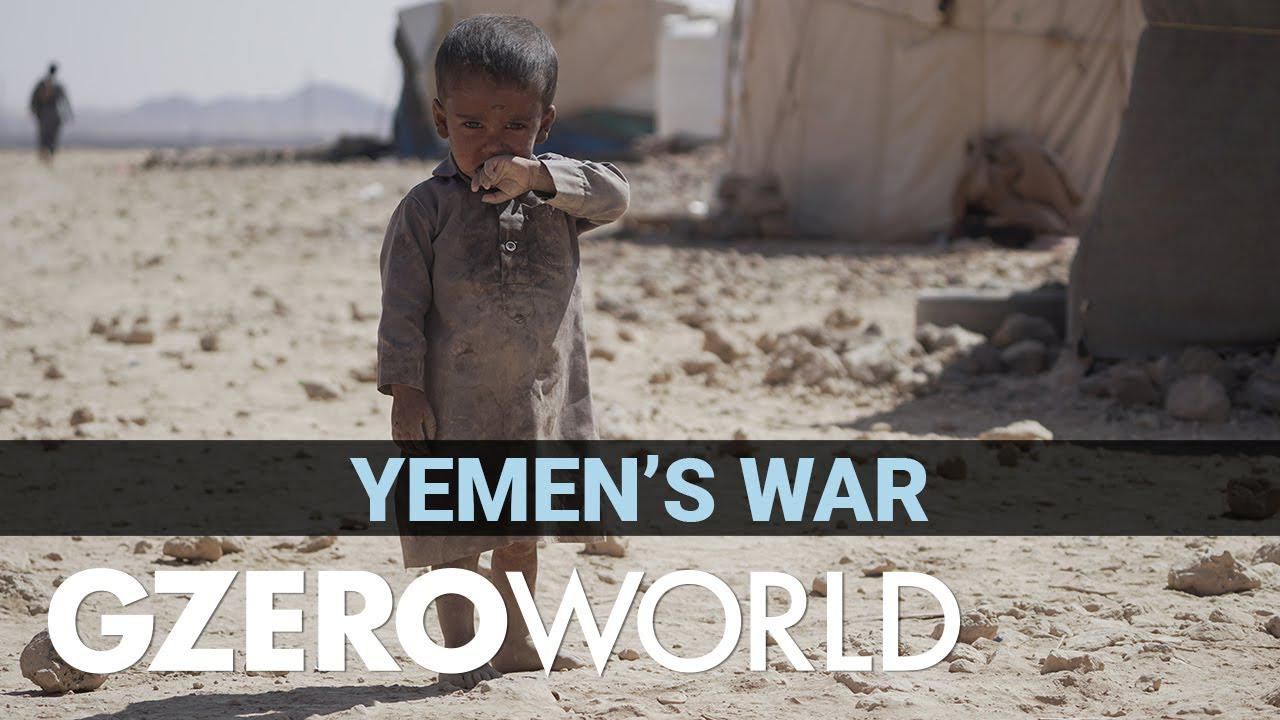GZERO World Clips
Living in Yemen's "devastating" civil war

Living in Yemen's "Devastating" Civil War | GZERO World with Ian Bremmer

Life is very hard today in Yemen, the country with the worst humanitarian crisis you may not have heard about lately.
UN Resident Coordinator David Gressly paints a grim picture of destroyed infrastructure and people scared of moving around. There are so many landmines, he says, that many Yemenis stay away from health clinics and schools because they fear being killed or maimed.
And every year the war drags on, it gets worse.
For Gressly, the average Yemeni cannot get basic services from any of the two rival governments. They are too busy fighting each other, and wouldn't have the resources anyway.
Yemen, he says, is (barely) running on an annual $2 billion in international assistance, but even that won't be enough very soon. The value of the local currency has plummeted so much and logistics become so complicated due to the war that the cost of food has skyrocketed.
That's why the UN is now asking for $3.6 billion to fund their operations in Yemen in 2022. If that target is not met, Gressly warns Yemenis will start to go hungry and hospitals won't be able to treat patients — which will kill as many people as lack of food.
Watch his interview with Ian Bremmer in the upcoming episode of GZERO World.
15: The number of migrants who died after their boat accidentally collided with a Greek Coast Guard vessel in the Aegean Sea on Tuesday. Two dozen people were rescued.
Walmart is investing $350 billion in US manufacturing. Over two-thirds of the products Walmart buys are made, grown, or assembled in America, like healthy dried fruit from The Ugly Co. The sustainable fruit is sourced directly from fourth-generation farmers in Farmersville, California, and delivered to your neighborhood Walmart shelves. Discover how Walmart's investment is supporting communities and fueling jobs across the nation.
Democratic Alliance leader John Steenhuisen announced Wednesday that he will not run for a third term as leader of the liberal, pro-business party, after months of internal pressure over a host of controversies – including allegations, since cleared, that he used the party credit card for Uber Eats.